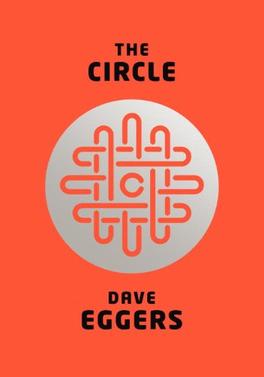‘The Circle’ shines a light on the digital society

August 28, 2016
Dave Egger’s electric novel “The Circle” provides a window into some of today’s most pressing ethical and moral questions between one’s relations with technology and its seemingly magnetic grasp on the world and individual’s lives.
The novel, which chronicles recent liberal arts college graduate Mae Holland’s time at the sleek, powerful technology company The Circle — a company much like Facebook or Amazon — confronts readers with issues of surveillance, transparency, privacy, and, above all, constant connectivity and participation in The Circle.
Led by the “Three Wise Men” the Circle as a company transforms itself from an innovative tech company to a totalitarian, capitalist monopoly that’s pulse is ever present in the world.
Mae’s malleability as well as her need to keep her job at the Circle continually propels her forward, causing her to ultimately become the face of company.
As Eggers carefully crafted story unfolds over pages of rapid dialogue, it becomes strikingly clear of Mae’s impact and influence over the future of the Circle.
Mae’s industrious qualities coupled with the demanding and instant gratification environment at the Circle leave her left to endure what most would deem “information overload” — completely exhausted with little to no time for reflection at the end of her days.
Her only refuge is paddling through a bay on her kayak — but even that disappears with her quick ascent to celebrity status at the Circle when she becomes “totally transparent” by wearing a camera around her neck that anyone can watch from anywhere in the world.
While the text operates simultaneously as a utopian and dystopian vision of the world, it also reveals the tragic results of being on camera nearly all the time and the give and take nature in creating a utopian society.
Theatricality becomes a central part of everyday life for Circle employees and politicians who become overnight celebrities and are instantly elevated to the world’s stage as a result of going totally transparent.
Many characters in the novel have an extreme dislike for any ambiguity and uncertainty in their life, leaving little room for spontaneity in their lives, especially when they are transparent, which in turn cuts off any learning about one’s self.
Emotions are reduced to “smiles” and “frowns” online, severing any meaningful dialogue or understanding between humans. The only voices of morality come from Mae’s ex-boyfriend Mercer and Kalden, a mysterious man Mae meets at the Circle. Both fail to rein Mae in and to help her see their way of thinking.
Ultimately, the Circle as an experiment leaves readers grappling with a stark picture of what life could be like if people all but forget the importance of reflection, empathy and laboring over what is right and just in our ever increasing digital society.
